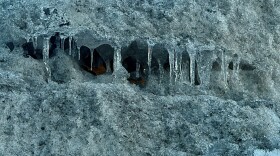For now, Minnesota officials say panic has eased over federal funding for a program helping low-income households with their energy bills but there is still concern about long-term budget moves.
The state said last Thursday, May 1, it received its last remaining share of Low-Income Home Energy Assistance Program grants for the current fiscal year, which means Minnesotans still needing help catching up on heating costs from this past winter will not be left behind. States were kept waiting on funds after the Trump administration laid off the entire staff in charge of sending the money out.
Lissa Pawlisch, assistant commissioner of federal and state initiatives for the Minnesota Department of Commerce, said they are relieved, noting the long-standing program is a lifesaver.
"This is something that helps support your neighbor, your grandmother," Pawlisch pointed out. "It is what is needed to make sure that every Minnesotan has a warm and safe environment for their children, for elderly, for folks with disabilities."
The state had warned it was dangerously close to exhausting funds. For the next federal fiscal year, President Donald Trump has proposed eliminating LIHEAP. However, Congress will have a say on the program's future, as it enjoys bipartisan support. The White House said state utility disconnection laws make LIHEAP unnecessary but advocates countered such protections are temporary and energy bills still need to be paid.
The Trump administration pointed to a 15-year-old Government Accountability Office report on LIHEAP which identified potential cases of fraud. However, state directors said reforms have helped strengthen the program's integrity. Pawlisch added the federal aid gets sent to utilities on behalf of customers in need, preventing people from exploiting the service.
"We don't want to see any waste, fraud or abuse in these programs," Pawlisch emphasized. "We want to make sure that those dollars are helping the people who really need them."
The department said so far this year, Minnesota's Energy Assistance program has helped more than 116,000 households. Demand is higher in rural counties, especially in the northern half of the state.
Officials said aid does not just go toward energy bills. Participants can also tap into it for filling up propane tanks or to cover emergency repairs for furnaces.
-
During the week of Feb. 10, 2026, we enjoy reports of waddling skunks, warmer weather and hibernating woodchucks. Staff phenologist John Latimer responds.
-
During the Phenology Report for the week of Feb. 10, 2026, Staff Phenologist John Latimer remarks on 'dragon's teeth,' pussywillows and Bald Eagles returning to nests.
-
Grand Itasca Clinic and Hospital is hosting a free speaker series to address the stigma of addiction. The first talk is 7 p.m. Feb. 11, 2026, at the Reif Center in Grand Rapids.











